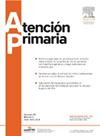Determinantes del acceso a la salud dental en España
IF 1.8
4区 医学
Q2 MEDICINE, GENERAL & INTERNAL
引用次数: 0
Abstract
Objective
This study analyzed the relationship between demographic and socioeconomic factors with access to dental services in Spanish adults.
Design
Descriptive, cross-sectional, observational study.
Site
The 2023 Spanish Living Conditions Survey was used, with national coverage of the adult population.
Participants
27,227 households and 56,532 adults were included, of whom 48.0% were men and 52.0% were women between 18 and 85 years of age (by 2023), and an average age of 50 years.
Interventions
Not required.
Main measurements
A logistic model was estimated to analyze the determinants of the probability of consulting a dentist when needed. The main variables considered were access to dental health, income, meeting with friends and/or family, general health status, participating in leisure activities, and spending money on oneself.
Results
The results suggested that higher income, lack of social interaction, poor general health status, lack of participation in leisure activities and inability to spend money on oneself were the five main factors explaining the lack of access to dental care in Spain.
Conclusions
The results allow to conclude that access to dental health in Spain is strongly influenced by socioeconomic factors, such as income, social interaction and spending capacity, suggesting a need to address these inequalities to ensure equitable access to dental care for the entire population.
西班牙获得牙科保健的决定因素
目的分析西班牙成人牙科就诊与人口统计学和社会经济因素之间的关系。设计描述性、横断面、观察性研究。地点:2023年西班牙生活条件调查,覆盖全国成年人口。参与者包括27,227个家庭和56,532名成年人,其中48.0%为男性,52.0%为女性,年龄在18至85岁之间(到2023年),平均年龄为50岁。InterventionsNot必需的。主要测量估计一个逻辑模型来分析在需要时咨询牙医的概率的决定因素。考虑的主要变量是获得牙齿健康、收入、与朋友和/或家人的会面、一般健康状况、参加休闲活动和为自己花钱。结果高收入、缺乏社会交往、总体健康状况不佳、缺乏休闲活动和无法为自己花钱是西班牙人无法获得牙科保健的五个主要因素。结论:研究结果表明,西班牙获得牙科保健的机会受到收入、社会交往和支出能力等社会经济因素的强烈影响,这表明需要解决这些不平等现象,以确保全体人口公平获得牙科保健。
本文章由计算机程序翻译,如有差异,请以英文原文为准。
求助全文
约1分钟内获得全文
求助全文
来源期刊

Atencion Primaria
医学-医学:内科
CiteScore
2.90
自引率
8.00%
发文量
156
审稿时长
33 days
期刊介绍:
Atención Primaria es una revista que publica trabajos de investigación relativos al ámbito de la atención primaria de salud. Desde el punto de vista conceptual, Atención Primaria asume el nuevo modelo de atención primaria de salud, orientado no sólo a la curación de la enfermedad, sino también a su prevención y a la promoción de la salud, tanto en el plano individual como en el de la familia y la comunidad. En estos nuevos aspectos que definen el modelo de atención primaria de salud es en los que se centran los trabajos de investigación que publica Atención Primaria, la primera revista de originales española creada para recoger y difundir la producción científica realizada desde los centros de atención primaria de salud sobre cuestiones como protocolización de la asistencia, programas de prevención, seguimiento y control de pacientes crónicos, organización y gestión de la asistencia primaria, entre otros.
 求助内容:
求助内容: 应助结果提醒方式:
应助结果提醒方式:


